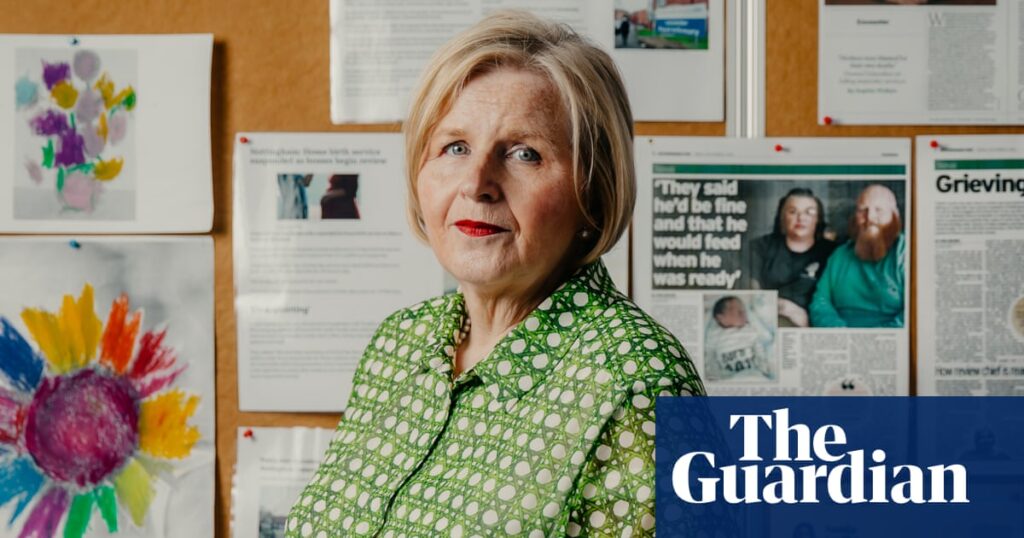One of the UK’s most senior midwives has said inaction by the previous government over maternity care failures has led to the “difficult” situation in wards across England and a rise in reports of birth trauma.
Donna Ockenden, who is leading the biggest inquiry in NHS history into maternity failures in Nottingham, said the Conservatives had been given a “blueprint” for how to improve maternity services but that it had not been implemented.
“I think the current government has inherited a really, really difficult picture around perinatal care, birth care and increasing reports of birth trauma. If only the previous government had done what it said it would do, that inheritance would have been very different,” she said.
Ockenden is leading a review into maternity services at the Nottingham university hospitals NHS trust, the largest inquiry into a single service in the history of the NHS, with 2,406 affected families taking part. The findings will be published in June 2026.
She expressed frustration over the slow pace of change after her report on the Shrewsbury and Telford maternity scandal, which found that 300 babies had died or been left brain-damaged as a result of inadequate care.
“We published [that report] in March 2022 and there were 22 immediately essential actions, as well as hundreds of actions for the NHS trust,” she said. “But with the chaos that followed in the year before the general election, things got lost and we are not as far ahead with those immediately essential actions as we should be.”
Guardian analysis has found that the NHS is facing a £27bn bill for maternity failings in England since 2019, significantly more than the health service’s approximately £18bn budget for newborns in that time.
Ockenden said the figures left her “deeply concerned”, and she stressed that the cost of avoidable maternity harm was felt across “mental health, other health services, the economy, the wider community, relationships, whole families and careers”.
“This is not the way it should be. I would absolutely not say that families do not deserve compensation when they have a poor outcome, but rather that if the money was invested upfront into making the service safer, then we could make significant strides towards reducing this very significant harm,” she said.
She said maternity wards were also dealing with problems caused by high levels of poverty across the country.
“There are a number of families, mothers and children living in destitution – which sounds very Victorian, but I do see examples of that. I hear about it from across the country and I see examples of real deprivation in Nottinghamshire,” she said.
after newsletter promotion
“Maternity services are not an island. What comes in the front door of a maternity unit is that which is out there on our streets, whether that’s women living in refugee status, in homeless hostels, women who come to antenatal clinics hungry because it’s a choice between giving their children something for breakfast or [the women] eating.”
Last month, the health secretary, Wes Streeting, criticised what he described as “the normalisation of deaths of women and babies” and said: “We have women who are classed as having a normal birth still leaving traumatised and scarred.”
He announced a national investigation into NHS maternity services in England, along with a national maternity and neonatal taskforce comprising a panel of experts and bereaved families.
Ockenden said the news was “encouraging” and that “hearing, amplifying and acting upon family voices must be the golden thread that runs through it all”.
“It is my hope that the changes outlined in these plans improve perinatal services today and in the future, and drastically reduce the risk of harm. Women and families deserve safe maternity care, always,” she said.


